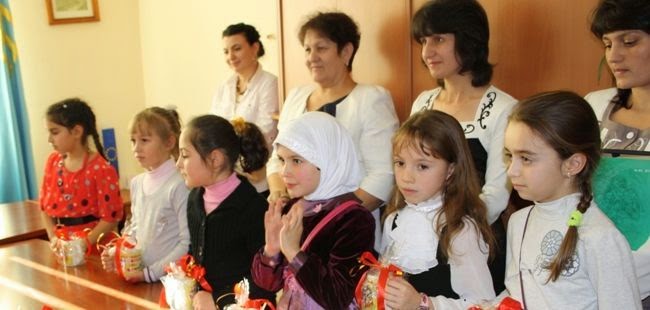
Russia Imposes New History Textbooks on Crimean Schools
By Paul Goble
History teachers, the deputy education minister in Russian-occupied Crimea says, are going to have to make “a 180-degree turn” in their work, eliminating Ukrainian histories and replacing them with Russia-centered texts. While “Ohm’s law remains Ohm’s law” even in Crimea, Vladimir Buyakevich said, every historical event has a distinctive national coloration, reflecting the ideology of the state in which the schools are located (qha.com.ua, September 9).
The change-over to Russian history textbooks this year promises to be so difficult and dramatic that some of the teachers on the Ukrainian peninsula have decided to form an Association of History Teachers in order to discuss best practices and consider how to make the transition. Its leaders have indicated that they will devote particular attention to older students who have been taught in one, Ukrainian direction, but now must be instructed in another, Russian one.
This shift represents an attempt to de-Ukrainianize the peninsula and also to play down the role of other ethnic groups as well. As such, it is likely to provoke complaints that it falls under the United Nations definition of genocide, which holds that any efforts to wipe out a people’s historical memory—and not just physical destruction—is genocidal.
And such complaints are even more likely because the Russian occupying authorities are restricting the number of course hours for the Ukrainian language and even more for Crimean Tatar, with pressure being applied on parents to not ask for such courses. Meanwhile, their responses are being used as justification for cutting the amount of class time for these two national languages to one-fifth or even one-sixth of the amount devoted to Russian and making the study of Ukrainian and Crimean Tatar optional rather than required (qha.com.ua, September 11).
But even if these Russian moves do not constitute acts of genocide, they are certain to infuriate both ethnic Ukrainians and Crimean Tatars living on the occupied Ukrainian peninsula as well as members of both nations living elsewhere in Ukraine. They are also likely to lead many non-Russians in the Russian Federation to conclude, as some already have, that what Moscow is doing in Crimea is what it intends to do in Russia as a whole. And that, in turn, means that what looks like a simple bureaucratic move in Crimea could become a political problem not only there but across Russia, where non-Russian languages have been under pressure for decades and where most of the smaller languages are at risk of dying out, according to UN reports.




